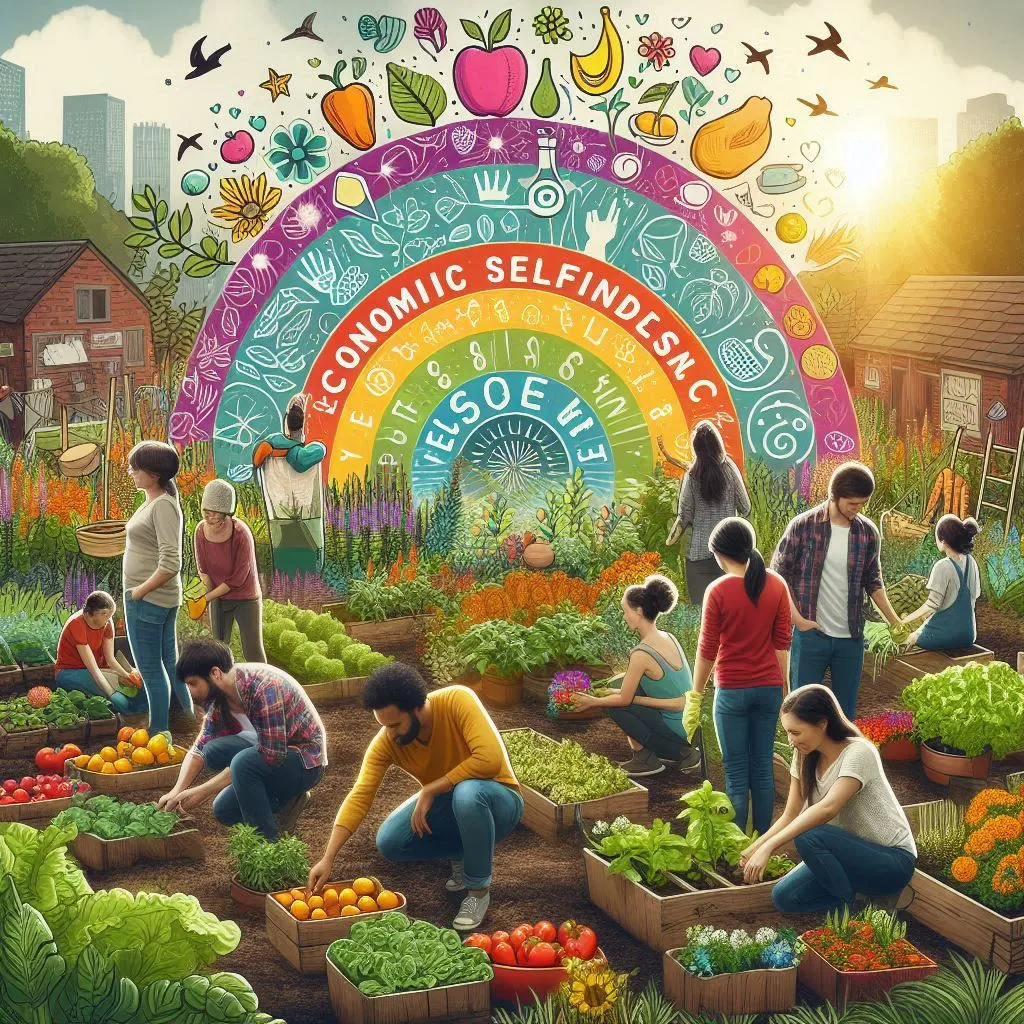Economic self-reliance is the ability of individuals, communities, or nations to meet their financial needs and achieve economic stability without external assistance. This concept emphasizes independence, sustainability, and resilience in managing economic resources and opportunities.
Key Components of Economic Self-Reliance
- Financial Independence: The capability to generate income and manage expenses without external support.
- Resource Management: Effective use and conservation of resources to ensure long-term sustainability.
- Economic Resilience: The ability to withstand economic shocks and recover from financial setbacks.
- Self-Sufficiency: The capacity to produce essential goods and services independently.
Benefits of Economic Self-Reliance
- Reduced Dependency: Less reliance on external aid or support, leading to greater autonomy.
- Economic Stability: Enhanced ability to weather economic fluctuations and crises.
- Empowerment: Increased control over economic decisions and future planning.
- Sustainable Development: Promotes sustainable use of resources and long-term economic growth.
Steps to Achieve Economic Self-Reliance
- Financial Literacy: Educate individuals and communities about financial management and planning.
- Diversified Income Sources: Develop multiple streams of income to reduce dependency on a single source.
- Investment in Local Industries: Support local businesses and industries to strengthen the local economy.
- Resource Conservation: Implement practices to conserve and sustainably manage natural resources.
Challenges in Achieving Economic Self-Reliance
- Lack of Education: Limited access to financial education and resources.
- Economic Inequality: Disparities in income and opportunities can hinder progress.
- External Dependencies: Over-reliance on foreign aid, imports, and external investments.
- Resource Scarcity: Limited natural resources and economic opportunities in certain regions.
Examples of Economic Self-Reliance
- Microfinance Programs: Initiatives that provide small loans to entrepreneurs to start and grow their businesses.
- Community Cooperatives: Groups that pool resources to achieve common economic goals and improve local economies.
- Agricultural Self-Sufficiency: Communities that focus on local food production to reduce dependency on imports.
- Renewable Energy Projects: Investments in local renewable energy sources to achieve energy independence.
The Role of Governments in Promoting Economic Self-Reliance
- Policy Support: Implement policies that encourage local entrepreneurship and sustainable development.
- Infrastructure Development: Invest in infrastructure to support economic activities and connectivity.
- Education and Training: Provide education and training programs to enhance skills and knowledge.
- Incentives for Local Businesses: Offer incentives and support for local businesses to thrive and expand.
Economic Self-Reliance at the National Level
- Trade Policies: Developing trade policies that prioritize local industries and reduce dependency on imports.
- Economic Diversification: Diversifying the economy to reduce reliance on a single sector or commodity.
- Foreign Investment Regulation: Balancing foreign investment with the need to protect and promote local industries.
- National Savings Programs: Encouraging national savings to fund local investments and reduce external debt.
Economic Self-Reliance and Globalization
- Balancing Act: Finding a balance between participating in the global economy and maintaining economic independence.
- Local vs. Global: Emphasizing local production and consumption while engaging in international trade.
- Cultural Preservation: Protecting local cultures and industries from being overshadowed by global influences.
Practical Tips for Individuals to Achieve Economic Self-Reliance
- Budgeting: Create and stick to a budget to manage income and expenses effectively.
- Savings and Investments: Prioritize savings and make informed investment decisions.
- Skill Development: Continuously improve skills to enhance employability and income potential.
- Entrepreneurship: Consider starting a small business or side hustle to generate additional income.
Economic Self-Reliance in Different Contexts
- Urban Areas: Focus on diverse economic activities, technology, and innovation.
- Rural Areas: Emphasize agriculture, local craftsmanship, and sustainable resource use.
- Developing Countries: Address fundamental issues like education, healthcare, and infrastructure.
- Developed Countries: Focus on reducing debt, increasing savings, and sustainable development.
The Future of Economic Self-Reliance
- Technological Advancements: Leveraging technology to create new economic opportunities.
- Sustainable Practices: Promoting sustainable economic practices to ensure long-term stability.
- Global Cooperation: Balancing self-reliance with international cooperation and trade.
- Resilience Building: Enhancing resilience to global economic shocks and challenges.
Conclusion
Economic self-reliance is crucial for individuals, communities, and nations to achieve financial stability, independence, and sustainability. By focusing on financial literacy, diversified income, resource management, and resilience, economic self-reliance can be achieved and maintained.


